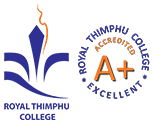1. When will admissions start?
Admissions for RTC’s regular full-time programmes and Continuing Education programmes start from March till July each year.
2. What are the admission requirements and how can I apply?
RTC takes a holistic approach to admissions, looking at both students’ personal traits and potential, and also at their academic background.
Please see the "Eligibility Criteria" and the "How to apply?" web links for more details.
3. What courses does the RTC offer?
The College offers three/four year BA programmes in four combinations (in subjects including English, Economics, Political Science, and Environmental Studies). In addition, RTC offers three-year Business programmes in BCom and BBA. In 2015, RTC launched a BSc programme in Environmental Management (four-year) following the launch of a four-year BSc programme in Nursing and Midwifery in 2018. RTC also launched two new programmes in 2019, BA in Mass Communication and BA in Anthropology. In 2022, RTC launched a 4 year Bachelor's programme in Sports and Health Sciences in affiliation with the Khesar Gyalpo University of Medical Sciences of Bhutan (KGUMSB). In the future, the College will be looking to offer more new programmes as well.
4. What affiliations does RTC have?
RTC is affiliated with the Royal University of Bhutan (RUB) and the degrees for study at RTC will be awarded by RUB. The Royal University of Bhutan was founded on June 3, 2003, by a Royal Decree and is an Associate Member of the Association of Indian Universities. His Majesty, Jigme Khesar Namgyel Wangchuck, King of Bhutan, serves as the Chancellor. In addition, RTC became the first accredited college in the country on June 29, 2016, after receiving the highest grade, an A+ from Bhutan Accreditation Council (BAC). RTC also maintains academic partnership agreements with Wheaton College of Massachusetts, USA, Quest University in Canada, SEISA University in Japan, and numerous other recognized Universities around the world that accept academic credits from RTC through study-abroad programmes.
5. What is the language of instruction?
All the courses offered at the RTC are taught in English.
6. How much does it cost to study at RTC?
The aim of the RTC is to provide the highest quality of education while keeping fees affordable. While RTC seeks to provide a level of quality that can be benchmarked with the best in the region, the fee structure is comparable to colleges in India offering a similar level of quality and facilities. Please see the "Fee Structure" link for more details.
7. Does RTC accept day scholars? How much are the fees for day scholars?
Yes, RTC does accept day scholars. For the day scholars, only the tuition fees will apply. Please see the "Fee Structure" link for more details. RTC has a bus service that keeps moving back and forth from the RTC campus to Thimphu. The City bus services are also extended till RTC for students who commute from Thimphu to RTC on a daily basis.
8. What are the infrastructure and facilities like?
The infrastructure and facilities provided by RTC are better than those available at any other institutes of higher education in Bhutan and are at par with the best universities in the region. The RTC academic zone contains facilities such as classrooms, seminar halls, audio-visual rooms, an IT center, library, faculty offices, Centre for Innovative Teaching and Learning, and an auditorium. All facilities are new, with the most advanced technology desirable for teaching purposes. The recreational and residential zones currently include spacious and attractive dining facilities, a Multi-Purpose Hall, comfortable and convenient residences for students and staff, a gymnasium with modern exercise equipment, and football, basketball, and other playing fields. RTC has also added a substantially expanded library and an executive center. There are ample open and multi-use spaces consisting of plazas, amphitheaters, a convenience store, book-shops, and a canteen where students and faculty mingle for their meals and conversation.
9. What is the boarding capacity?
RTC has ten residential blocks that will accommodate approximately 600 boarding students.
10. How do I contact RTC? What are RTC’s address and telephone number?
Please refer to the “Contact Address” link on this website for a variety of ways you may contact us.
11. Can I visit RTC? Is the College open for visits by the public? Do you give guided tours?
We encourage all interested parties to visit the RTC campus. Prospective students and their families should go initially to the Marketing Department office to obtain a diagram of the campus and to check the availability of student guides. RTC will be arranging guided tours of the campus for interested students and parents from March onwards. Please call the Marketing or Business Development office (02-351801, ext# 136, 145) for further details.
12. Apart from the regular degree courses, does RTC offer other short courses?
Besides the regular degree courses, RTC expects to offer short courses to address specific market needs in areas related to its academic programmes in areas such as IT, Finance, Accountancy, Management, etc. More information on such courses will be posted on this website and in other media in the future as these courses become available.
13. Does RTC offer part-time courses such as evening classes for the general public?
RTC offers Continuing Education programme for working professionals. Click here for further information and more details on the CE Programme.
